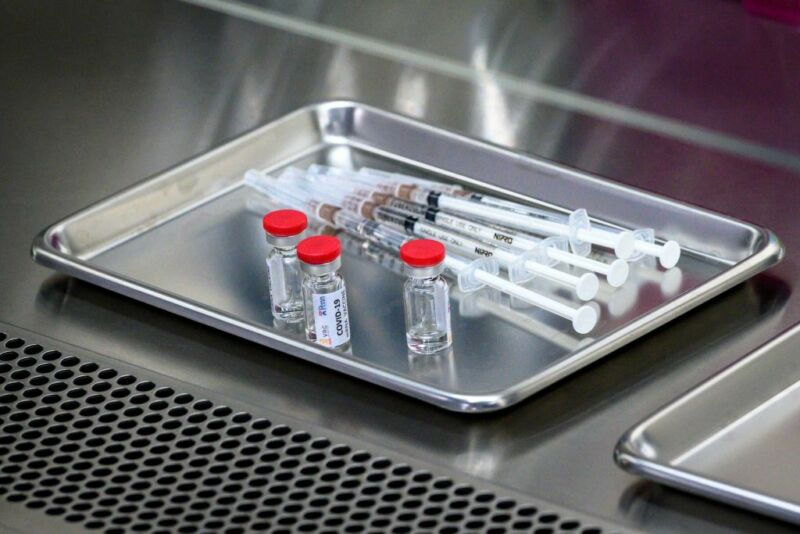
The Trump administration has committed to spend $1.95 billion on 100 million doses of a potential COVID-19 vaccine being developed by Germany’s BioNTech and US pharma giant Pfizer, which will be distributed free of charge to American citizens.
BioNTech announced on Wednesday that the supply agreement signed by the White House also includes the option for the US government to purchase a further 500 million doses, subject to the vaccine being granted regulatory approval.
Several governments have signed agreements with some of the 24 groups currently testing a coronavirus vaccine on humans, including a promising candidate developed by Oxford university and AstraZeneca, but most other purchasers have refused to reveal the price paid per dose.
As BioNTech’s vaccine candidates will probably require at least two doses per person, the cost per immunization is roughly $40.
Prices in advance purchase deals vary considerably according to what is in the agreement—and in particular on how much the government is committing to help the company carry out trials and scale up manufacturing.
Warp speed
The US government’s Operation Warp Speed aims to deliver 300 million doses of a certified vaccine by January 2021. It has already spent more than $1 billion on investments in vaccines being developed by Moderna and Johnson & Johnson.
In May, the United States secured 300 million doses of Oxford university and AstraZeneca’s vaccine for $1 billion.
Earlier this month, BioNTech and Pfizer released preliminary data from its clinical trial in the US. They found that two dozen patients injected with the vaccine candidate developed immune responses that were similar or better than those found in recovered coronavirus patients.
The companies hope to apply for approval from the Food and Drug Administration, a US regulator, as early as October, following a large-scale trial with 30,000 participants. They say they have capacity to manufacture 1.4 billion doses by the end of 2021, including 100 million this year.
“We made the early decision to begin clinical work and large-scale manufacturing at our own risk to ensure that product would be available immediately if our clinical trials prove successful,” said Pfizer chief executive Albert Bourla.
The US move comes after the UK government ordered 30 million doses of BioNTech’s vaccine and 60 million doses of another vaccine from Valneva of France, which is less advanced in clinical development. But it did not disclose financial details of the agreements.
Kate Bingham, head of the UK government’s vaccines task force, said the country was aiming for a total of at least eight deals—two for each of the four main vaccine technologies (genetic vaccines, viral vectors, inactivated whole virus and protein-based vaccines).
12 vaccines
“We initially talked to the government about going up to 12 vaccines but it’s more likely to be around eight, at least initially,” said Ms. Bingham. “That would give us a broad and diverse portfolio.”
Ugur Sahin, cofounder and chief executive of BioNTech, said: “We are also in advanced discussions with multiple other government bodies and we hope to announce additional supply agreements soon.”
BioNTech said it had also expressed an interest in supplying the COVAX program, which aims to enable equitable access to a vaccine. It is run by Gavi, the Coalition for Epidemic Preparedness Innovations (Cepi), and the World Health Organization.
The Mainz-based company is one of several using messenger RNA (mRNA) technology to develop a COVID-19 vaccine—a process that is faster than traditional methods. However, there is as yet no certified mRNA product on the market.
© 2020 The Financial Times Ltd. All rights reserved. Not to be redistributed, copied, or modified in any way.
reader comments
120